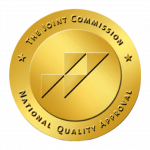Grieving the loss of a loved one to an overdose is a painful experience. One that causes a rollercoaster of emotions, from shame, sadness, anger, and sometimes even guilt. Dealing with these emotions can cause a great deal of emotional stress and physical degradation.
Society has a stigma about overdoses and doesn’t treat these deaths in the same view of natural causes. Which can make it extremely difficult to navigate these feelings and emotions when discussing them with friends and family members.
This grieving process is an intricate and complex period in life for you and those that were close to the deceased. The duration of the grieving period can vary, and some of the feelings you initially felt may subside but never truly disappear. As time goes on we learn to live with the grief. But how?
Learn to be Patient
When you lose a loved one to an overdose we try to understand why. We question the “what ifs”, we blame ourselves, we try to rationalize the situation just to cope with the emotions. These are all normal responses to the loss of a loved one.
There are many emotions that come with the loss of a loved one. If you’ve experienced any of the following, just know that you’re not alone.
- Denial and Isolation: Losing a loved one to an overdose will feel surreal at first. Our minds’ natural response to a loss is to deny reality. We try to avoid any reminders of truth and often times will isolate ourselves.
- Anger: When we are no longer in denial we may have feelings of anger arise. We may start to feel upset with ourselves, the deceased or even life itself. Questions like “why me”, are common when we are experiencing anger.
- Depression: Experiencing the full burden of loss can become overwhelming. We can become lost in our own mental battles, which can lead to clinical depression.
- Confusion: Losing a loved one to an overdose can cause you to experience forgetfulness, and difficulty with memory.
- Sadness/Resentment: Sadness releases stress hormones in the body. You may experience feelings of resentment for the deceased. You may feel that there were things left unsaid.
How Do We Cope
Losing a loved one to an overdose can make it difficult to talk to individuals who don’t understand addiction. Society has a stigma about individuals who overdose, and this can make it hard to discuss the death of our loved ones.
Grief is the natural way of the body dealing with loss. How we do that must be healthy, and conducive to our life. You may feel like the feelings of grief will never end, but allow yourself time. Be patient, give effort, and allow yourself to feel.
- Support: Surround yourself with supportive people. It’s important to be surrounded by positive people during this time.
- Counseling: Find the right support group or therapist that can allow you to express yourself freely. A therapist can help you find healthy ways to navigate through your grieving.
- Forgiveness: Learn to let go of resentment, and learn to forgive yourself. Your loved one was struggling with a disease, they are not defined by their disease. Find hobbies that bring you joy and give you a sense of self.
- Patience: Be patient with yourself. Understand that the rollercoaster of emotions is normal, and the grieving process takes time.
Where Can I Get Help?
If you’ve convinced your family member to go into addiction treatment, consider referring that person to the Harm Reduction Center. We provide child and family support services. To learn more about HARC and the other services that we provide, feel free to contact us today. We provide compassionate inpatient and outpatient care for people that suffer from addiction. We understand that addiction and recovery is a tough conversation to have, but this one conversation can save your loved one’s life.














